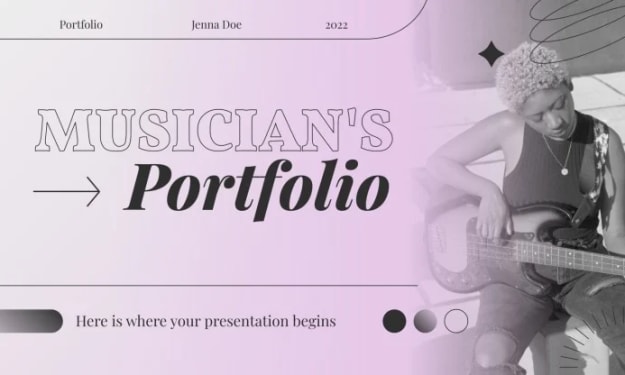Harmonizing College Life: Tips for Aspiring Musicians
Navigating college life while pursuing musical ambitions can be challenging yet rewarding.

Navigating college life while pursuing musical ambitions can be challenging yet rewarding. For many students, college is a time to explore and develop their talents. However, balancing academic responsibilities with the dedication required for music can seem overwhelming. This article provides practical advice and strategies for college students who are passionate about music, helping them to make the most of their time in school while honing their craft.
How to Make Music When in College?
1. Effective Time Management:
Time management is the foundation of balancing college and music. Here’s how to master it:
Prioritization: Identify your top priorities each week. Allocate time for classes, study sessions, and music practice. Use a planner or digital calendar to organize your schedule and avoid last-minute cramming or rushed practice sessions.
Time Blocking: Divide your day into dedicated time blocks for specific activities. For example, reserve mornings for academics, afternoons for music practice, and evenings for leisure or additional study. Stick to this routine to build consistency.
Break Tasks into Chunks: Break down larger tasks into smaller, manageable chunks. This applies to both academic assignments and music projects. Tackling one small task at a time can make the workload feel less daunting and more achievable.
2. Utilizing Campus Resources:
Your college likely offers numerous resources that can support your musical journey:
Music Facilities: Explore the music department’s facilities, including practice rooms, recording studios, and instrument rentals. These resources can provide a professional environment to enhance your music production.
Music Clubs and Organizations: Join music clubs, ensembles, or bands on campus. These groups offer a sense of community, regular practice opportunities, and performance events that can boost your experience and exposure.
Music Courses and Workshops: Enroll in music-related courses or attend workshops offered by your college. These can provide formal training, new skills, and networking opportunities with like-minded students and faculty.
3. Networking and Collaboration:
Building a network of fellow musicians can open up exciting opportunities for collaboration:
Finding Collaborators: Use social media, college forums, and music clubs to find other students who share your musical interests. Collaborating on projects can enhance creativity and lead to unique musical endeavors.
Attending Events: Participate in college events, open mic nights, and local music festivals. These events are excellent opportunities to perform, meet new people, and gain inspiration from other artists.
Interdisciplinary Collaborations: Collaborate with students from other disciplines, such as film, dance, or theater. This can lead to innovative projects and broaden your creative horizons.
4. Technological Aids:
Technology can significantly enhance your music-making process:
Digital Audio Workstations (DAWs): Invest in a good DAW like Ableton Live, FL Studio, Logic Pro, or GarageBand. These programs allow you to record, edit, and produce music with professional quality, even from your dorm room.
Virtual Instruments and Plugins: Explore virtual instruments and plugins to expand your sound palette. Many DAWs come with built-in instruments, but you can also find free or affordable options online.
Online Tutorials and Courses: Utilize platforms like YouTube, Udemy, Coursera, and Skillshare to learn new techniques and stay updated with industry trends. These resources offer tutorials on everything from basic music theory to advanced production skills.
5. Balancing Academics and Music:
Maintaining a balance between your studies and music production is crucial for long-term success:
Study Techniques: Use effective study techniques like active recall, spaced repetition, and summarization to optimize your learning. These methods can help you retain information more efficiently.
Academic Resources: Take advantage of academic resources such as tutoring centers, study groups, and office hours with professors. If you’re struggling to balance your workload, these resources can provide additional support.
Setting Boundaries: Set clear boundaries between your study time and music production time. Avoid multitasking to ensure you’re fully focused on each task.
6. Health and Well-Being:
Your health and well-being play a significant role in your ability to manage multiple responsibilities:
Sleep and Nutrition: Ensure you get adequate sleep and maintain a balanced diet. Proper rest and nutrition are essential for maintaining energy levels and cognitive function.
Exercise: Incorporate regular physical activity into your routine. Exercise can reduce stress, improve mood, and enhance overall well-being.
Mental Health: Practice stress management techniques such as mindfulness, meditation, or deep breathing exercises. Don’t hesitate to seek professional help if you’re feeling overwhelmed.
7. Setting Realistic Goals:
Setting realistic and achievable goals is key to staying motivated and making consistent progress:
Short-Term Goals: Break down larger goals into smaller, manageable tasks. For example, if you aim to produce an album, start with writing individual songs, then move on to recording and editing.
Long-Term Goals: Keep your long-term goals in mind, but focus on making steady progress. Celebrate your achievements along the way to stay motivated.
Tracking Progress: Use journals, apps, or project management tools to track your progress and keep yourself accountable.
8. Seeking Mentorship:
Having a mentor can provide valuable guidance and support:
Finding a Mentor: Look for professors, older students, or local musicians who can offer advice and share their experiences. A mentor can help you navigate challenges, provide constructive feedback, and introduce you to new opportunities.
Regular Check-Ins: Schedule regular check-ins with your mentor to discuss your progress, challenges, and goals. Their insights can help you stay on track and make informed decisions.
9. Leveraging Internships and Work Experience:
Gaining practical experience through internships or part-time jobs in the music industry can be incredibly beneficial:
Internships: Look for internships with local recording studios, music production companies, or music venues. These positions can provide hands-on experience and valuable industry connections.
Campus Jobs: Some colleges offer on-campus jobs related to music, such as assisting in the music department or managing sound for events. These roles can provide practical experience while keeping you close to your academic environment.
Freelance Work: Consider taking on freelance projects, such as producing music for local artists or creating soundtracks for student films. Freelancing can help you build your portfolio and develop your skills.
10. Creating a Supportive Environment:
Surround yourself with supportive peers who understand and encourage your musical pursuits:
Positive Peer Influence: Engage with friends and peers who share your passion for music and understand the importance of your academic responsibilities.
Study and Practice Groups: Form study groups with classmates to stay motivated and keep up with coursework. Similarly, create practice groups with fellow musicians to share feedback and improve your skills.
Community Engagement: Participate in local music communities, both online and offline. Being part of a community can provide additional support, inspiration, and opportunities.
Conclusion:
College is an excellent time to hone your musical skills. With the right balance of time management, resource utilization, and a supportive network, you can successfully navigate the dual demands of academics and music. Embrace the opportunities for growth and creativity that college offers, and use these strategies to make the most of your time. Remember, maintaining your health and well-being is crucial, so take care of yourself as you pursue your dreams.
https://blog.delivermytune.com/how-to-make-music-when-in-college/
About the Creator
Enjoyed the story? Support the Creator.
Subscribe for free to receive all their stories in your feed. You could also pledge your support or give them a one-off tip, letting them know you appreciate their work.






Comments
There are no comments for this story
Be the first to respond and start the conversation.